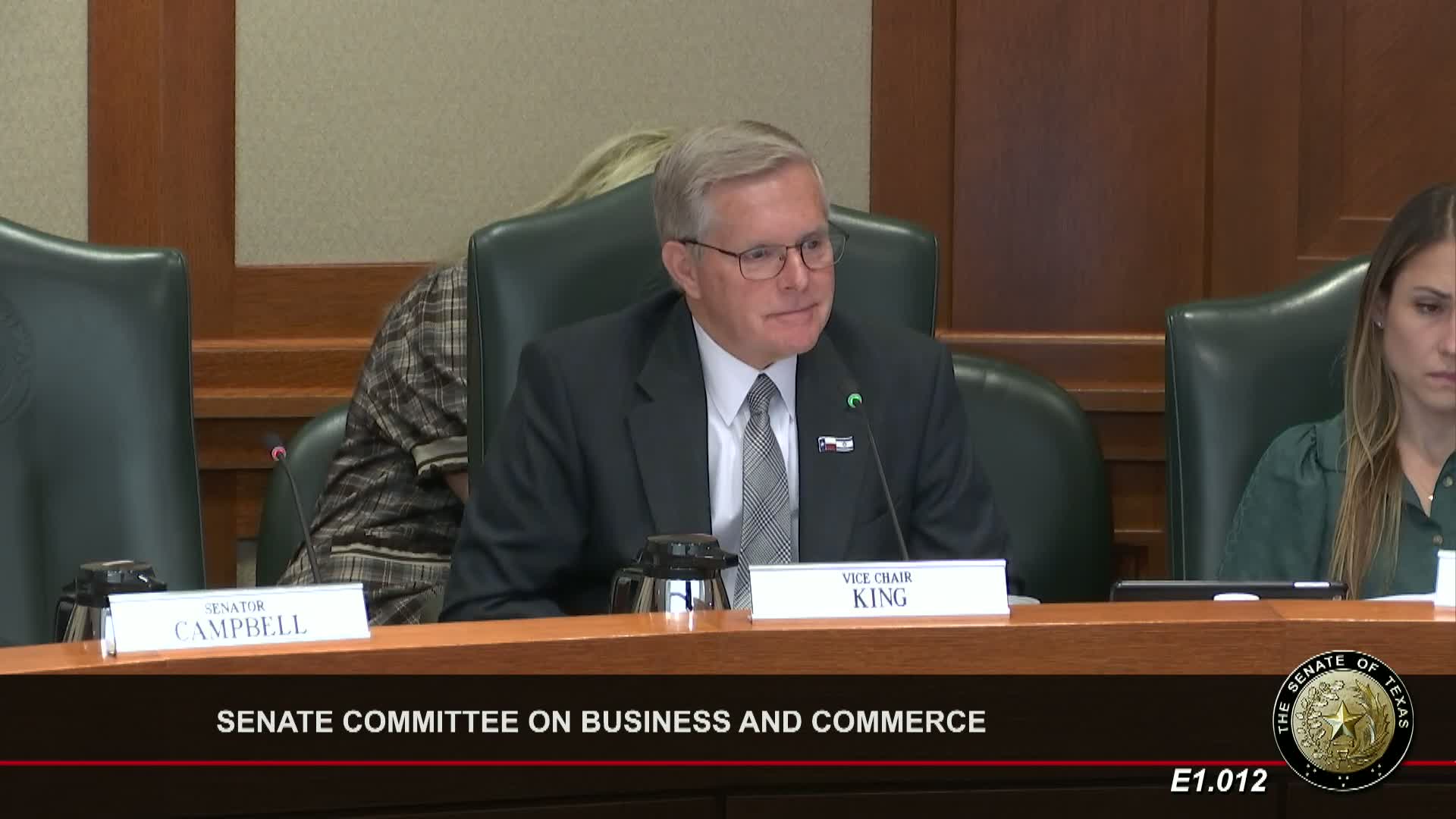Cyrus Reed criticizes nuclear bill at Texas hearing while proposing key amendments
May 08, 2025 | Committee on Business & Commerce, Senate, Legislative, Texas
This article was created by AI summarizing key points discussed. AI makes mistakes, so for full details and context, please refer to the video of the full meeting. Please report any errors so we can fix them. Report an error »

The Senate Committee on Business and Commerce convened on May 8, 2025, to discuss critical issues surrounding proposed legislation related to nuclear energy, specifically House Bill 14. The meeting featured a range of testimonies from various stakeholders, highlighting both support and opposition to the bill.
Cyrus Reed, representing the Sierra Club, expressed strong opposition to the bill, citing concerns over its cost, risks, and slow implementation. He emphasized the historical context of the Comanche Peak nuclear plant, which took 16 years longer than anticipated to become operational, leading to increased expenses. Reed proposed several amendments should the bill proceed, including converting grants to loans, ensuring projects do not supply electricity to the Electric Reliability Council of Texas (ERCOT), and relocating the nuclear energy office from the governor's office to the Public Utility Commission (PUC) for better oversight. He also advocated for the establishment of safety standards and lifecycle management criteria.
Following Reed, Stephen Beers voiced his opposition, arguing that the nuclear industry remains heavily subsidized and still requires significant support to operate effectively. He suggested that instead of funding nuclear projects, resources could be better allocated to improving efficiency in natural gas applications, such as methane capture and reuse.
In contrast, Drew DeWalt expressed support for HB 14, framing the discussion within a global context. He highlighted the urgency for the U.S. to enhance its nuclear capabilities in light of competition from countries like China and Russia, which have made significant advancements in nuclear technology through substantial government support. DeWalt argued that the U.S. must invest in its nuclear supply chain to ensure domestic reactors are developed and operational.
The meeting concluded with a call for further testimonies, underscoring the ongoing debate surrounding nuclear energy's role in Texas's energy future. The committee's discussions reflect a broader conversation about balancing energy needs, safety, and economic considerations in the state's legislative agenda. As the committee moves forward, the implications of these discussions will likely shape Texas's energy policy in the coming years.
Cyrus Reed, representing the Sierra Club, expressed strong opposition to the bill, citing concerns over its cost, risks, and slow implementation. He emphasized the historical context of the Comanche Peak nuclear plant, which took 16 years longer than anticipated to become operational, leading to increased expenses. Reed proposed several amendments should the bill proceed, including converting grants to loans, ensuring projects do not supply electricity to the Electric Reliability Council of Texas (ERCOT), and relocating the nuclear energy office from the governor's office to the Public Utility Commission (PUC) for better oversight. He also advocated for the establishment of safety standards and lifecycle management criteria.
Following Reed, Stephen Beers voiced his opposition, arguing that the nuclear industry remains heavily subsidized and still requires significant support to operate effectively. He suggested that instead of funding nuclear projects, resources could be better allocated to improving efficiency in natural gas applications, such as methane capture and reuse.
In contrast, Drew DeWalt expressed support for HB 14, framing the discussion within a global context. He highlighted the urgency for the U.S. to enhance its nuclear capabilities in light of competition from countries like China and Russia, which have made significant advancements in nuclear technology through substantial government support. DeWalt argued that the U.S. must invest in its nuclear supply chain to ensure domestic reactors are developed and operational.
The meeting concluded with a call for further testimonies, underscoring the ongoing debate surrounding nuclear energy's role in Texas's energy future. The committee's discussions reflect a broader conversation about balancing energy needs, safety, and economic considerations in the state's legislative agenda. As the committee moves forward, the implications of these discussions will likely shape Texas's energy policy in the coming years.
View full meeting
This article is based on a recent meeting—watch the full video and explore the complete transcript for deeper insights into the discussion.
View full meeting
